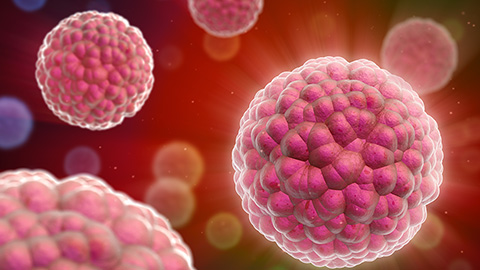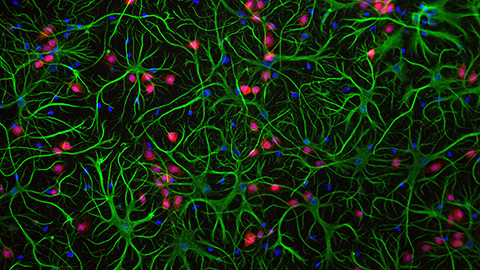
Keep your friends close and your RNAs closer
The importance of understanding RNA biology never has been more apparent. Not only did an RNA virus cause a global pandemic, COVID-19, but an RNA-based vaccine has the power to end it. RNA biology is complex and fascinating, and alterations to its function often lead to disease.
How much do you really know about RNA? How is RNA regulated? What does RNA do in the cell? What happens when RNA regulation goes wrong? What are the latest approaches to studying RNA function?
Our symposia at Discover BMB, the annual meeting of the American Society for Biochemistry and Molecular Biology, in Seattle in March is organized around these important questions and will feature a diverse set of experts on these topics.
Keywords: RNA modifications, epitranscriptome, RNA localization, splicing, viral RNA, RNA binding proteins, RNA structure.
Who should attend: Everyone who is curious about the diverse biology regulated by RNA, how RNA works and the latest methods to study its function.
Theme song: “Message in a Bottle” by The Police.
This session is powered by ribonucleic acid, its modifications and the interacting proteins.
Speakers
RNA binding proteins and disease
Daniel Dominguez (chair), University of North Carolina at Chapel Hill
Brenda L. Bass, University of Utah
Alfredo Castello, Medical Research Council–University of Glasgow Centre for Virus Research
Kristen Lynch, University of Pennsylvania School of Medicine
RNA modifications: discovery and function
Stacy Horner (chair), Duke University School of Medicine
Lydia M. Contreras, University of Texas at Austin
Kate Meyer, Duke University School of Medicine
Jordan Meier, National Cancer Institute
Novel RNAs: localization, form, function
Silvi Rouskin, Harvard Medical School
Eliezer Calo, Massachusetts Institute of Technology
Grace Chen, Yale University
Matthew Taliaferro (chair), University of Colorado Anschutz Medical Campus
The complete list
Learn about all 11 symposia planned for Discover BMB 2023:- Protein Machines and Disorder
- Regulation of RNA
- Organelles, Mechanisms and Phase Properties of Cellular Quality Control
- Lipid Dynamics and Signals in Membrane and Protein Structure
- Frontiers in Carbohydrate Synthesis and Recognition
- Bias In, Bias Out in Data Science
- Cell Signaling — New Tools and Emerging Concepts
- Education and Professional Development
- Biochemistry of Elemental Cycling
- Advances in Organismal and Cellular Metabolism
- Artificial Intelligence and Machine Learning in Structural Biology, Drug Design and Systems Biology
Enjoy reading ASBMB Today?
Become a member to receive the print edition four times a year and the digital edition monthly.
Learn moreGet the latest from ASBMB Today
Enter your email address, and we’ll send you a weekly email with recent articles, interviews and more.
Latest in Science
Science highlights or most popular articles

Building a career in nutrition across continents
Driven by past women in science, Kazi Sarjana Safain left Bangladesh and pursued a scientific career in the U.S.

Avoiding common figure errors in manuscript submissions
The three figure issues most often flagged during JBC’s data integrity review are background signal errors, image reuse and undeclared splicing errors. Learn how to avoid these and prevent mistakes that could impede publication.

Ragweed compound thwarts aggressive bladder and breast cancers
Scientists from the University of Michigan reveal the mechanism of action of ambrosin, a compound from ragweed, selectively attacks advanced bladder and breast cancer cells in cell-based models, highlighting its potential to treat advanced tumors.

Lipid-lowering therapies could help treat IBD
Genetic evidence shows that drugs that reduce cholesterol or triglyceride levels can either raise or lower inflammatory bowel disease risk by altering gut microbes and immune signaling.

Key regulator of cholesterol protects against Alzheimer’s disease
A new study identifies oxysterol-binding protein-related protein 6 as a central controller of brain cholesterol balance, with protective effects against Alzheimer’s-related neurodegeneration.

From humble beginnings to unlocking lysosomal secrets
Monther Abu–Remaileh will receive the ASBMB’s 2026 Walter A. Shaw Young Investigator Award in Lipid Research at the ASBMB Annual Meeting, March 7-10 in Washington, D.C.


